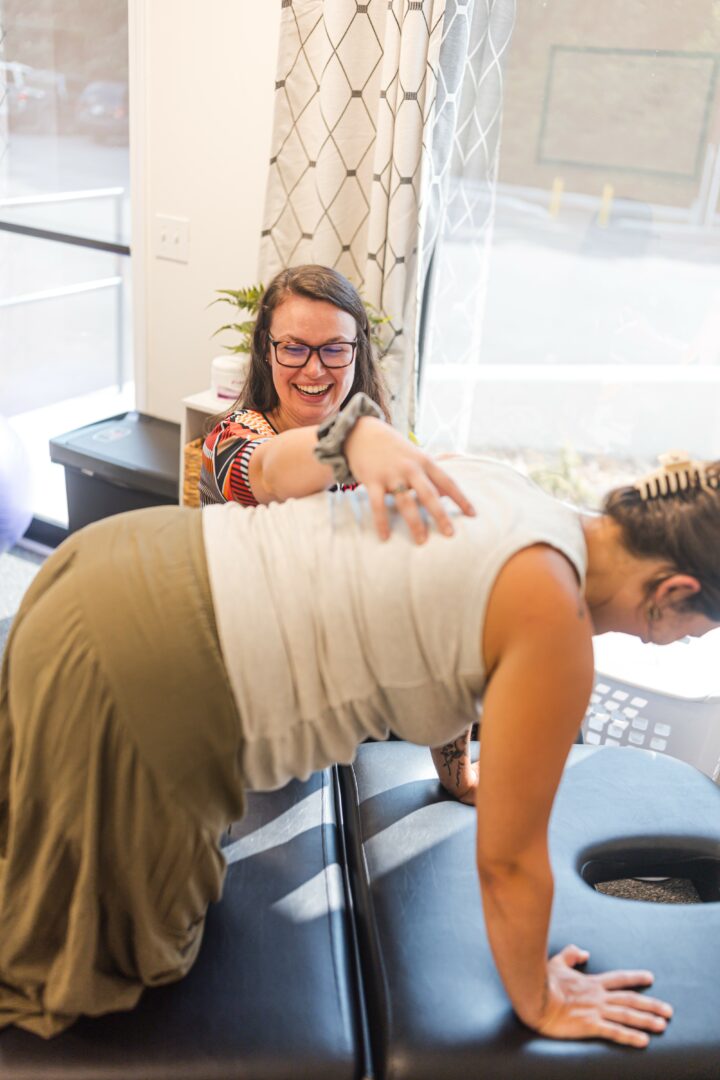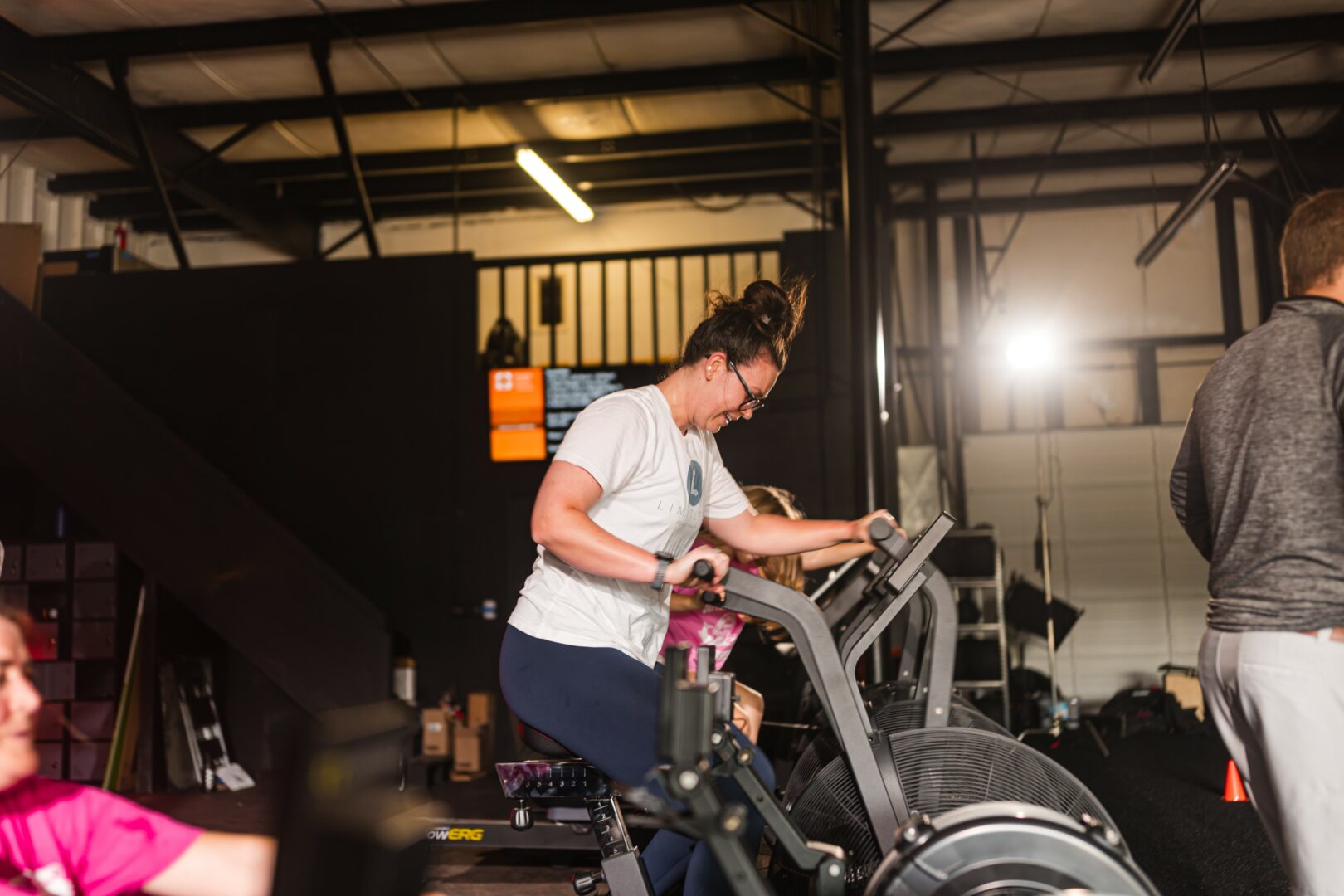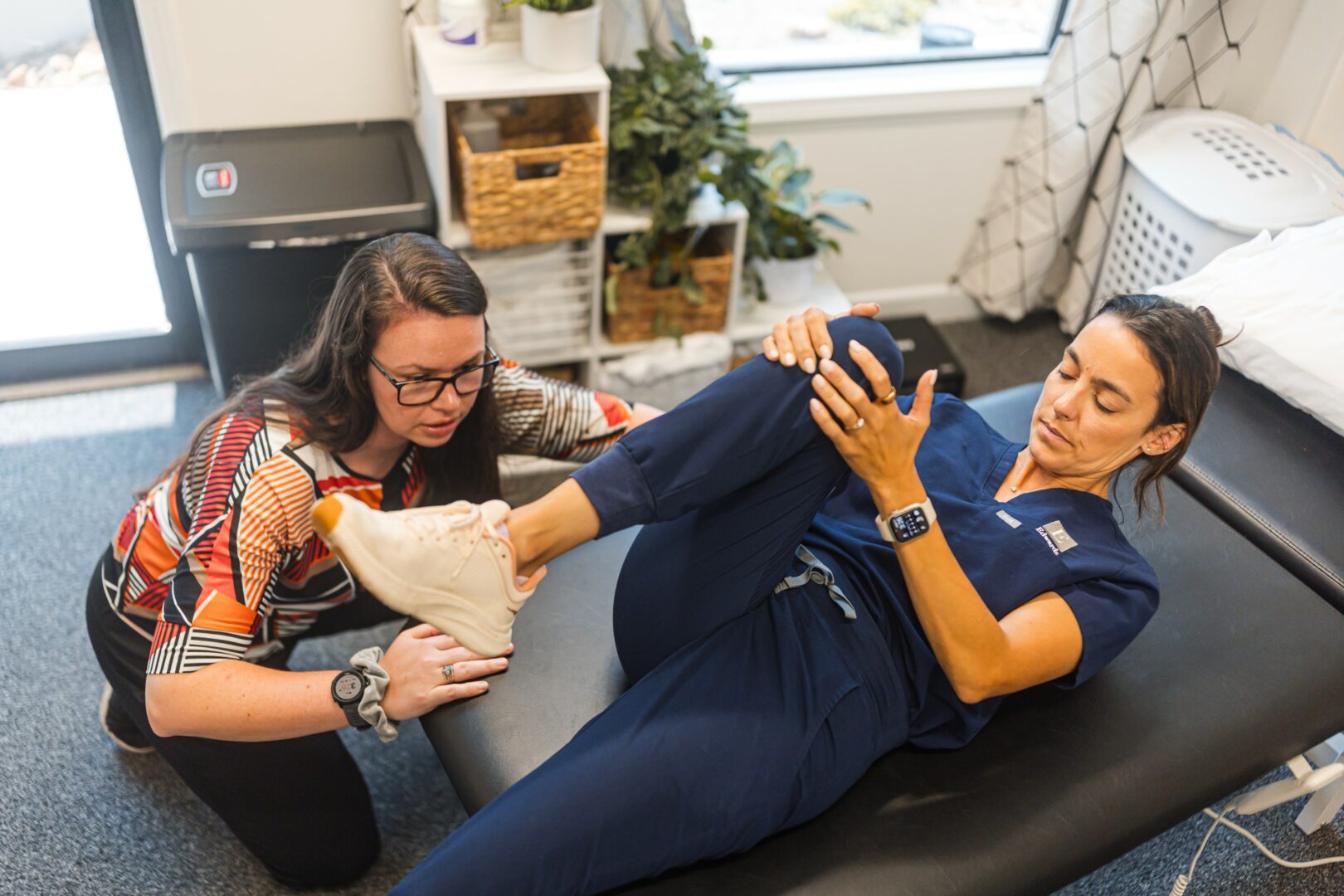Alright – so today we’ve got the honor of introducing you to Dr. Katie Fincher. We think you’ll enjoy our conversation, we’ve shared it below.
Dr. Katie, first a big thank you for taking the time to share your thoughts and insights with us today. I’m sure many of our readers will benefit from your wisdom, and one of the areas where we think your insight might be most helpful is related to imposter syndrome. Imposter syndrome is holding so many people back from reaching their true and highest potential and so we’d love to hear about your journey and how you overcame imposter syndrome.
When I first entered the field of pelvic health physical therapy, I was both eager and deeply uncertain. Despite completing a rigorous women’s health residency at Duke Health and holding a Doctorate in Physical Therapy, I constantly questioned whether I belonged in a space filled with such specialized knowledge and complexity. The transition into pelvic health felt like stepping into uncharted territory, and imposter syndrome quickly took root.
What ultimately propelled me beyond that self-doubt was a relentless commitment to continuous learning and a firm belief that patient care must always be prioritized over profit. Early in my career, I made a conscious decision to not let fear of failure paralyze me. Instead, I began reframing failures—both real and perceived—not as verdicts on my capabilities but as opportunities for growth. Every misstep became a data point, every challenge a catalyst for honing my clinical reasoning and decision-making.
Mentorship played an irreplaceable role in this process. I actively sought out mentors who not only guided me through complex clinical cases but also modeled confidence rooted in evidence-based practice and patient-centered care. Through these relationships, I was able to witness firsthand the value of experience, collaboration, and humility. Their support helped me develop a more grounded sense of clinical confidence that has extended beyond patient care into teaching, research, and program development.
Overcoming imposter syndrome wasn’t about achieving perfection—it was about building resilience through learning, leaning on mentorship, and continually returning to the question: “What is best for this patient in front of me?” That guiding principle has anchored me, allowing me to show up authentically in a profession I deeply respect. I now carry that confidence into every workshop, lecture, and clinical encounter, committed to empowering both patients and fellow clinicians on their own journeys.


Appreciate the insights and wisdom. Before we dig deeper and ask you about the skills that matter and more, maybe you can tell our readers about yourself?
At Limitless Pelvic Health in Greenville, South Carolina, we are dedicated to creating safe and supportive environments where individuals can address and heal from pelvic health impairments—issues that are often challenging to discuss. Our practice specializes in treating a wide range of conditions affecting individuals across the gender spectrum, including urinary incontinence, pelvic pain, sexual dysfunction, and postpartum recovery. Our skilled therapists employ evidence-based techniques to help patients regain control, alleviate discomfort, and enhance their quality of life.
One of the most exciting developments at Limitless Pelvic Health is the upcoming launch of our Women’s Health Residency Program in the fall of 2025. This program is designed to provide advanced training and mentorship to licensed physical therapists, equipping them with specialized skills in women’s health and pelvic floor therapy. Our goal is to cultivate a new generation of experts who are prepared to deliver exceptional care in this vital field. In addition to our residency program, we have recently initiated a pro bono physical therapy clinic specifically for patients and survivors of cancer who lack access to care or cannot afford traditional therapy services. This initiative reflects our commitment to community health and ensures that all individuals, regardless of their financial situation, have the opportunity to receive the therapy they need to improve their well-being.
As for me, I was raised in Wake Forest, North Carolina, and have always felt drawn to healthcare, particularly in areas that are underrepresented or misunderstood—pelvic health being one of them. I earned my Bachelor of Science in Kinesiology from Anderson University before completing my Doctorate in Physical Therapy at East Carolina University. I then pursued specialized training through a Women’s Health Physical Therapy Residency at Duke Health, where I developed a strong foundation in pelvic health, oncology, and lymphedema care. Now board certified in women’s health physical therapy and a certified lymphedema therapist, I am passionate about empowering patients through education, movement, and individualized care.
Outside of the clinic, I find joy in line dancing, spending time at the beach, and staying active through community events and workshops. These personal passions help keep me balanced and grounded, and I carry that same energy into my professional life—fostering a welcoming and affirming environment for every patient. Ultimately, I am driven by a desire to help individuals reclaim their lives and confidence, and to be part of a healthcare movement that prioritizes compassion, accessibility, and lifelong learning.


If you had to pick three qualities that are most important to develop, which three would you say matter most?
Reflecting on my journey, the three most impactful qualities that shaped my path in pelvic health physical therapy have been resilience, curiosity, and intentional mentorship. Each of these has influenced not only how I care for patients but also how I continue to grow as a clinician and person.
Resilience was essential, particularly when navigating the uncertainties and challenges of entering a niche field like pelvic health. Early on, I often faced complex patient presentations that pushed me beyond my comfort zone. Rather than allowing self-doubt or imposter syndrome to take root, I learned to view challenges as opportunities to grow. For those early in their journey, I encourage you to reframe failure—not as a reflection of your inadequacy, but as a catalyst for deeper learning and refinement of your skills. Embrace difficult moments with the mindset that each one is sharpening your clinical reasoning and capacity to serve others well.
Curiosity fueled my desire to understand the “why” behind every clinical decision and patient response. This constant pursuit of knowledge—whether through evidence-based practice, continuing education, or case consultation—helped me develop a comprehensive and adaptable approach to care. For new clinicians, never stop asking questions. Seek out resources, engage in discussions, and immerse yourself in learning. The field of pelvic health is dynamic, and a curious mind ensures that your care remains innovative and patient-centered.
Lastly, intentional mentorship has been invaluable. Actively seeking out experienced mentors allowed me to gain insights I could not have achieved alone and gave me a model for confidence and competence in clinical practice. Mentorship also provided a sounding board for complex cases and a source of encouragement during uncertain times. My advice: invest in mentorship early and often. Be intentional about building relationships with those you admire professionally, and be open to receiving feedback. A strong mentor can not only accelerate your clinical growth but also support your personal development as a healthcare provider.
In essence, develop resilience, stay relentlessly curious, and pursue mentorship with intention—these pillars will serve you well, no matter where your career leads.


How would you describe your ideal client?
My ideal client is someone who is ready to engage in their own healing journey—a person who may be experiencing challenges related to pelvic health or sexual wellness and is open to addressing these often sensitive topics in a collaborative and supportive environment. Given the personal and sometimes stigmatized nature of pelvic floor dysfunction, I value working with individuals who are willing to approach their care with curiosity, honesty, and a willingness to explore the mind-body connection.
Whether they are navigating pelvic pain, postpartum recovery, sexual dysfunction, or other complex pelvic health concerns, I find it most fulfilling to work with clients who are motivated not only by the desire for symptom relief but also by a broader goal of reclaiming confidence, function, and quality of life. These clients tend to see therapy not just as a quick fix, but as a partnership grounded in trust, education, and long-term wellness.
I am especially passionate about working with individuals who may have felt unheard or dismissed in previous healthcare experiences—those seeking a safe, affirming space where their concerns are validated and addressed through evidence-based, compassionate care. Ultimately, my ideal client is someone who values empowerment through knowledge, embraces collaborative goal setting, and is committed to investing in their own well-being, particularly in the areas of sexual health, pelvic health, and whole-person wellness.
Contact Info:
- Website: https://limitlesstherapyandwellness.com/
- Instagram: @drkatiefincher_dpt
- Facebook: Limitless Pelvic Health


Image Credits
Top Shelf Media Company
so if you or someone you know deserves recognition please let us know here.




